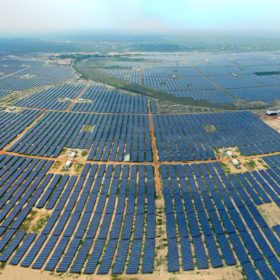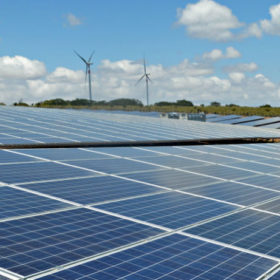Tamil Nadu to get 2,000 electric buses with German aid
For the purchase, the government of Tamil Nadu is seeking a loan from German state-owned development bank KfW, at an interest rate of 2%, according to reports.
Electric car sales in India declined by 40 per cent in 2018
Electric car sales in India declined by 40 per cent to a mere 1,200 units in the financial year 2018 over the financial year 2017, while electric two-wheeler sales rose 138 per cent to 54,800 units during the same period—according to research and consultancy group Wood Mackenzie.
This year could see a reckoning for ultra-mega PV projects
The fate of the clutch of 500 MW-plus projects due to break ground this year could determine whether such ambitious schemes have a viable future, says Wood Mackenzie in its solar 2019 forecast. And the Indian market should brace for consolidation, add the analysts, because of aggressive reverse-auction tariff pricing.
India to add up to 8.5 GW of RE in FY19
India is likely to add between 8-8.5 GW of renewable energy generation capacity in the current financial year ending March 2019, according to ICRA Limited.
2035: The renewable energy tipping point
The tipping point, where the world shifts from oil and gas to renewables, will be the year 2035, says Wood Mackenzie. This is when renewables and electric-based technologies converge, with around 20% of global power needs being met by solar or wind, and roughly 20% of miles traveled by cars, trucks, buses and bikes using electricity. Will the transition come soon enough, however?










